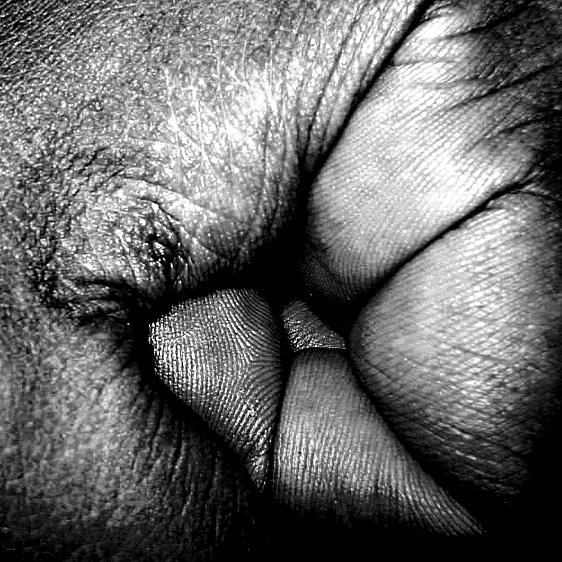When the words “darkie,” “brownie” and “blackie” filtered through the air and reached my ears, my immediate reaction was surprise, because it never occurred to me that I would be called such names in a college in Australia.
Then it dawned on me that that was exactly what was happening, and I had two choices.
I could immediately pay back in kind and become an aggressor as well, or I could parry the name calling and take no notice.
I opted for the second option, and I became a better person for it without a doubt.
Have you ever been in a similar situation and were unable to deal with it? If so, read on; this is how I dealt with discrimination:
The act of discrimination between human beings has been going on for millennia, and most of us regard it—whether rightly or wrongly—as a necessary act that somehow distinguishes us from the “other” or “others.” In the strictest sense, it involves the display of a nonchalant, non-caring word or gesture of superiority by one person to another.
Many people believe that discrimination should not happen to anyone, anywhere, because it clearly deprives a person of the natural freedom that everyone should enjoy. This is a commendable observation, and has a lot of merit.
However, for me discrimination is never a question of the deprivation of rights (unless accompanied by aggressive action), because I believe that my rights are never threatened—let alone deprived—by mere words or gestures.
Rather, it’s a question of how one responds.
I strongly believe that we all harbour a healthy competitive spirit, and we tend to display it—consciously or unconsciously—to let other people know that, somehow, we are superior. This alone is a perfectly healthy thing, but sometimes we use or respond with this competitive spirit in the wrong way, and when we do it can develop into serious situations where real confrontations take place—sometimes with sad, fatal results.
All this can be avoided if we educate ourselves to accept a basic truth about discrimination: It takes two to make a nothing into a something.
In a scenario involving discrimination, there are two principal players. The first player is the one who calls the shots, and a second player is the passive recipient and usually at the mercy of the aggressor.
When the discriminatory exchange begins, the two players automatically put themselves at the point of no return. The mood at this point is clear as the aggressor starts to act superior and the other player waits for the opportunity to respond—or not.
How the encounter will pan out depends on the response of the passive player.
If the passive player chooses to respond in an equally aggressive manner, then the stage is set for an inevitable confrontation between the two players. The verbal tirade may draw the two closer together, arms may start pushing and shoving, punches may be thrown, objects may be picked up and used, and before the two players realize it they are in the thick of a very serious melee.
On the other hand, nothing at all will happen if the passive player chooses to ignore the aggressor and leave the place to avoid more trouble. If the passive player decides to do this, then (s)he is in control by ignoring the aggressor.
Because of their response, no confrontation will take place.
I hold this to be true, because this is exactly what happened to me during my years of study in Australia.
I had left the safety and comfort of my homeland to pursue my studies in a college called St. Patrick’s College in the town of Ballarat in the state of Victoria. From the very first day, the school environment, the teachers, the students, the language, the food—everything was different.
Everyone seemed to stare or look at me intently and I tried very hard not to notice them. With time, names like “darkie”, “brownie” or “blackie” began to reach my ears, and slowly I began to build a defensive invisible wall between me and them by not saying anything and waiting for what might happen next.
If I had retaliated in kind, I would have been the worse off, so I decided to let my ego and pride take control of my behaviour. I decided not to take any notice of the taunts, and adopted their stance by becoming inwardly superior to my tormentors and behaving as if they had no effect on me whatsoever.
By simply behaving as superior, over time I managed not only to put a stop to my tormentors, but I also gained some admirers among my fellow students, who were to become true and lasting friends.
In order to really bolster my standing within the school community, I had to perform at my best. To do this, I decided to choose my physical skills.
I was a fine athlete, and I used my skills to express my inner pride and ego, but kept them under strict control so they wouldn’t ruin my position of esteem among my newfound friends. I couldn’t afford to become “superior” to them, but I could become their equal.
And that’s exactly what happened.
I became their equal by using my physical skills and prowess. During the four short years that I attended the college, I became a member of the First VIII football team, and became its captain 3 years later in 1966—my last year at the college.
I had begun my journey towards equality.
I then became a Prefect and Deputy Prefect and was awarded first prize for Roman History. I became a member of the basketball squad and member of the First IV rowing team. I became a member of the athletics team and also Open Champion. I was appointed captain of the athletics team in 1966. At last I was an equal and even my tormentors became ardent supporters!
Instead of demeaning myself by using my pride and ego as a weapon to confront my tormentors, I accepted the torments, and in doing so I allowed the discrimination to act as a catalyst.
It quickly and automatically ignited something within me and transformed my pride and ego into kinetic energy and action. This chain reaction allowed me to gain respect and friendship from my fellow students.
By ignoring my tormentors and deliberately harnessing the power of my pride and ego in combination with my physical abilities, I became a worthy equal before everyone in the college, and I knew they would never succeed in making me act the way they wanted me to.
They would never make me stoop down to their level.
If my approach to discrimination successfully worked for me, it may work for you too!
~
Relephant Read:
Talking About Race with Kids.
~
Author: Richard Smith
Editor: Toby Israel
Photo: fady habib/Flickr
~













Read 0 comments and reply